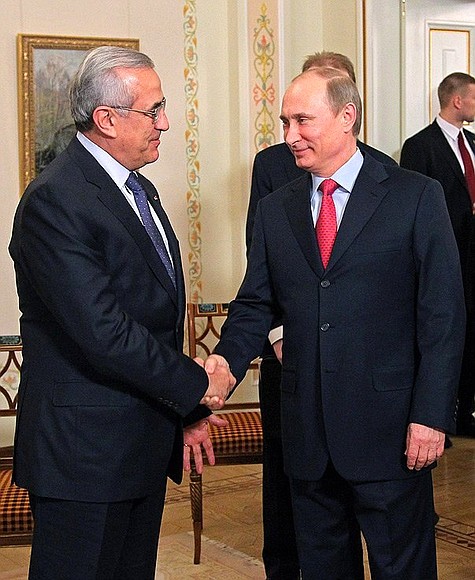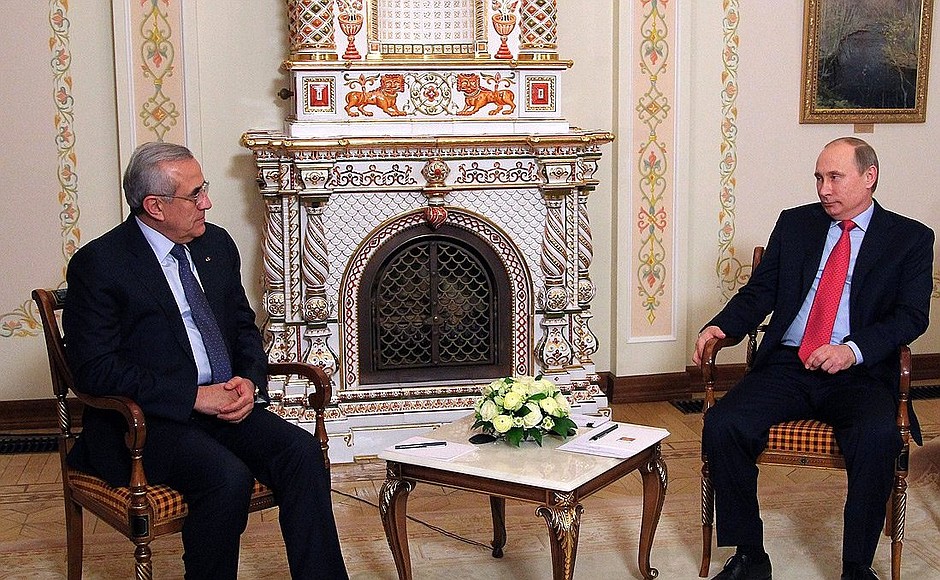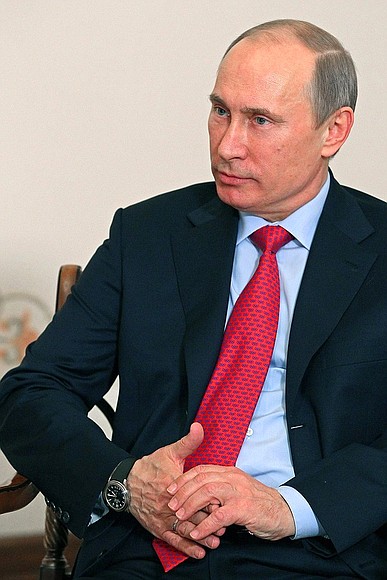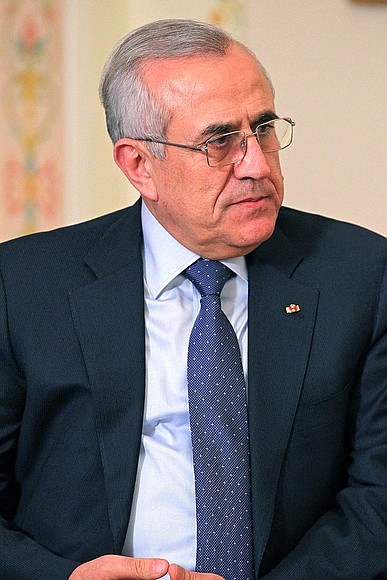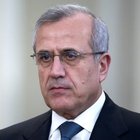In particular, the two presidents discussed the situation in Syria. Mr Putin expressed support for Mr Sleiman’s proposal to hold an international conference in Moscow on Syrian refugee problem.
The two leaders also discussed steps to strengthen bilateral cooperation in trade and the economy, and in the military technical and humanitarian sectors.
Mr Sleiman is in Russia on a private visit after the International Foundation for the Unity of Orthodox Peoples awarded him the prize for the services in the promotion and strengthening of Christian values in the modern world.
* * *
President of Russia Vladimir Putin: Mr President, colleagues, it is a great pleasure to see you and to welcome you to Moscow.
Mr President, I know you have come to our country on a private visit. I want to congratulate you on being awarded this prize by the Foundation for the Unity of Orthodox Peoples. I know that you intend to donate the money part of the prize to children. This is a very noble gesture and I would like to say thank you.
We have always considered Lebanon our friend and we have longstanding and very close business ties with your country. The situation in Lebanon is complicated, but this does not stop us from maintaining close and regular working contacts at almost every level.
Our foreign ministers meet regularly, and so do the heads of our various agencies. We worked actively together when Lebanon was one of the UN Security Council’s non-permanent members.
Our economic relations have been developing quite well, especially in 2011. There was a drop in this area last year, unfortunately, and so I am very pleased that we will have the chance to discuss this subject today.
More than 10,000 Lebanese students have studied in the Soviet Union and Russia. We are continuing these programmes today and around 100 students from Lebanon enter our universities every year.
Of course, military technical cooperation is also of interest to both countries. This is also an area in which we have things to discuss, and I am pleased to have this opportunity.
Welcome, Mr President.
President of Lebanon Michel Sleiman (retranslated): Mr President, thank you very much for this opportunity to meet with you even though I am in Russia on a private visit.
I want to thank you for the hospitality you have shown me and my delegation during this visit, and I also want to say what a great honour it is for me to receive this prize from the Foundation for the Unity of Orthodox Peoples.
As you know, I made a working visit to Russia in 2010, during which we reached some agreements on activating our bilateral relations and began taking steps in this direction. But sadly, as you noted, the general situation in the region has not made it possible for us to fully carry out our plans. I hope that this visit will give new impetus to the agreements reached earlier.
Lebanon and Russia have common interests in the Middle East, especially in light of the events taking place in the region at the moment, in Syria in particular. I think that Russia, as a great power, and you personally, Mr President, could play a part in finding solutions to the situation that has emerged, especially as concerns the dangerous consequences for neighbouring countries, above all Lebanon.
In our discussions of these issues with Russia we have the support of the solid historic ties that bind our two countries. We particularly value the fact that Russia has always stood by Lebanon on the question of our country’s independence, sovereignty and territorial integrity. I am referring here also to the role Russia played during the war in 2006. At that time, Russia was instrumental in the drafting and approval of UN Security Council resolution 1701, which enabled us to achieve peace and calm the situation in our country.
It is our desire to see Russia play an important part at state level in relations with the Arab countries in order to find a peaceful solution to the crisis in Syria and also avoid any potentially negative consequences for Lebanon.
Lebanon’s government has taken a principled decision of non-intervention in Syria’s domestic affairs in order to protect our country from possible negative consequences. The National Dialogue Committee stated this decision in the Baabda Declaration, but unfortunately, the continuing crisis and the worsening situation with Syrian refugees, who are fleeing the country in their tens of thousands, create a heavy burden for Lebanon.
There are now more than 200,000 Syrian refugees in Lebanon alone. We do not know how many more Syrian refugees will end up on our territory. Lebanon has neither the material nor geographical possibilities for taking in such a large number of refugees. We therefore would like to ask Russia to help to organise an international conference to discuss the Syrian refugee problem and look at what can be done to aid the countries taking in the refugees.
Once more, let me thank you for this chance to meet. I know that you have a very busy schedule.
Vladimir Putin: Mr President, you said that Lebanon has taken a decision of non-intervention in Syrian affairs. It would be good if other countries also followed your example.
As for the humanitarian issues, of course this is a great tragedy for those who have lost their homes and country and been forced to search for protection abroad. 200,000 refugees is a big burden for Lebanon, a big burden on your economy. What is the approximate cost to your budget of supporting the refugees in Lebanon?
Michel Sleiman: I cannot give an exact figure, but I know that the 2013 budget will have a deficit of $250–300 million due to supporting the refugees alone. And we do not know yet how many more will come. We have to provide them with medical services, housing, clothing, and even schooling too.
Vladimir Putin: So, you cannot say right now approximately how much money you are spending on supporting the refugees?
I have a proposal. Russia is ready to aid Lebanon in resolving these humanitarian problems. Let’s get our specialists to work out the amount of aid needed. It could be provided through several different channels. This would include direct financial aid, the amount of which we will decide together. Of course, we would be talking about targeted aid provided for the specific purpose of supporting the refugees from Syria. We are ready to provide the required amount of temporary housing, tents, medicines, and everything needed to ensure decent conditions for these people and give them humanitarian assistance and support.
I propose that we get our specialists to work out exactly what is needed and how much. Mr President, of course we will do everything we can to carry out your proposal and help to organise an international conference on the refugee issue. I propose that we do this together. If the countries concerned all agree – and only in such a case – we would be ready of course to offer Moscow as a venue for holding this conference.
<…>
